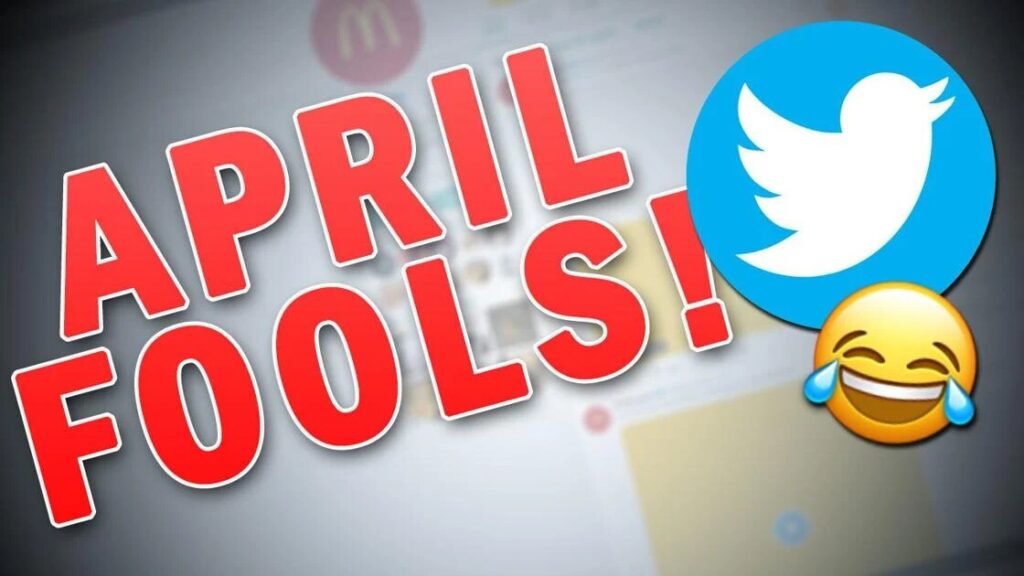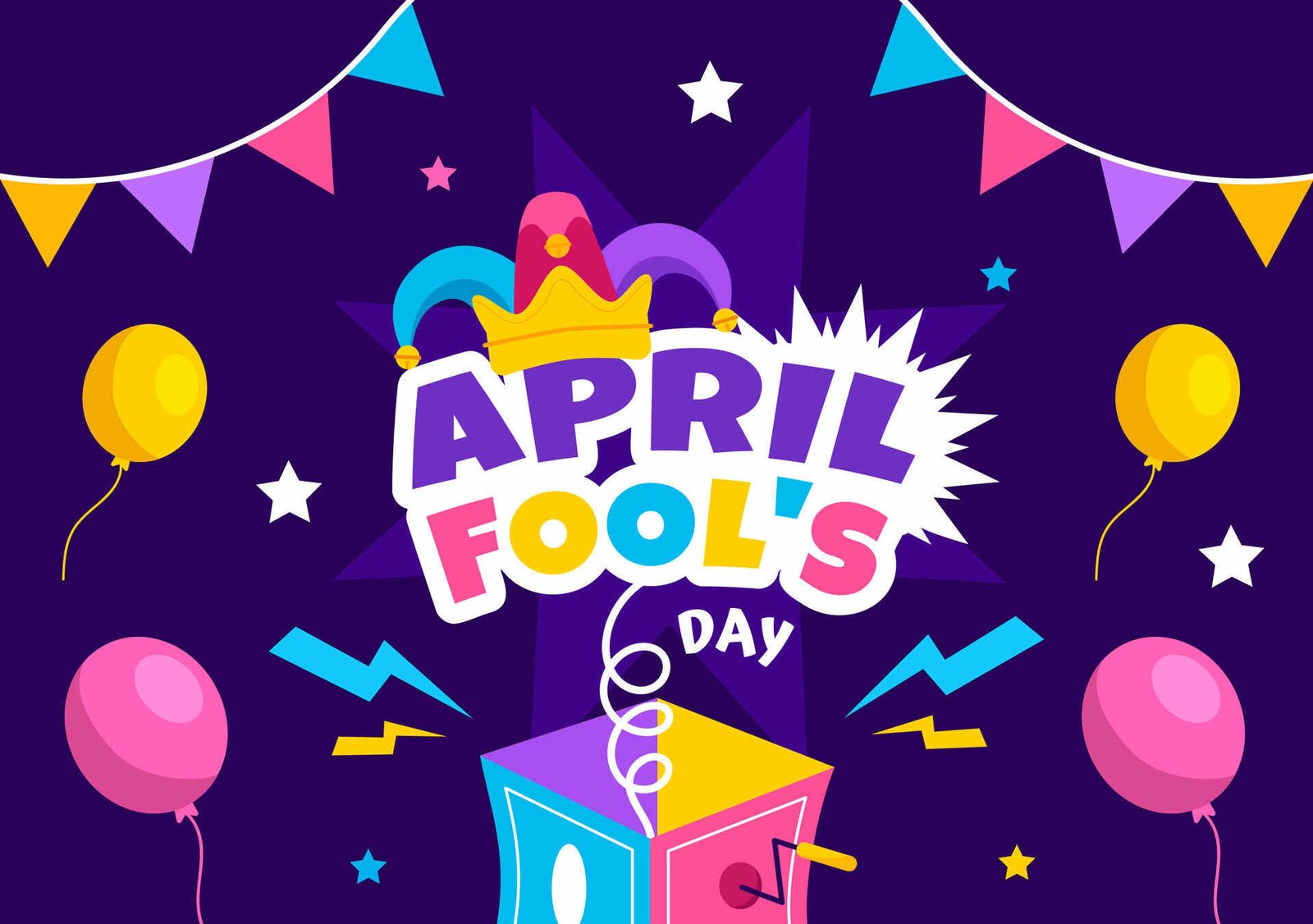April Fool’s Day is the perfect opportunity to have some fun with your marketing and connect with your audience in a playful way. It’s a day where creativity and humor can shine, and if done right, can create memorable experiences for your customers. Let’s dive into some fun and engaging marketing ideas for April Fool’s Day that can help you stand out.
Understanding the Spirit of April Fool’s Day
April Fool’s Day is all about humor, pranks, and having a good laugh. It’s a day when people are more open to light-hearted content and playful interactions.
As a brand, participating in this day can show your audience that you have a sense of humor and are in tune with current trends. However, it’s important to strike the right balance and ensure your jokes are in good taste and won’t offend anyone.
Crafting the Perfect Prank
Understanding Your Brand Voice
For startup founders, it’s crucial to align your prank with your brand voice and values. Start by identifying the core characteristics that define your brand. Are you known for being innovative, quirky, or professional? Your prank should reflect these attributes.
For example, if your brand prides itself on being cutting-edge, consider a prank that showcases an over-the-top futuristic product. This alignment not only ensures authenticity but also strengthens brand identity.
Conducting Audience Research
Deeply understand your audience to tailor a prank that will resonate well. Utilize tools like surveys, social media polls, and customer feedback to gather insights into what your audience finds amusing and engaging.
Look at past interactions and content performance to see what type of humor they respond to. This data-driven approach allows you to design a prank that is likely to hit the mark, ensuring higher engagement and a positive reception.
Collaborating with Influencers and Partners
Leverage partnerships and influencer collaborations to amplify your prank. Identify influencers whose audiences align with your target market and who have a good sense of humor. Work together to create content that feels natural and entertaining.
For example, an influencer could “review” your fake product, adding their unique twist to the prank. This not only extends your reach but also adds credibility and a human touch to your campaign.
Crafting a Believable Narrative
A successful prank often hinges on its believability. Craft a detailed and convincing narrative around your prank. Develop a storyline that explains why you’re launching this fake product or initiative.
Use realistic graphics, professional videos, and well-written copy to support the narrative. The more effort you put into making it look authentic, the more your audience will be drawn in and entertained by the eventual reveal.
Utilizing Social Proof
Incorporate elements of social proof to make your prank more convincing. This could be in the form of fake testimonials, fabricated user reviews, or staged social media posts from “early adopters” who are excited about your new product.
When people see others (even if they’re fictional) engaging with your prank, they’re more likely to believe it and join in the fun.
Creating Multi-Platform Campaigns
Maximize the impact of your prank by running a multi-platform campaign. Announce the prank on your website, send out email newsletters, and engage users on social media.
Each platform should offer a different piece of the story, encouraging your audience to follow along and engage across multiple channels. For instance, tease the prank on social media, provide detailed information on your website, and offer exclusive “sneak peeks” through your email newsletter.
Engaging Your Team
Get your entire team involved in the prank. Encourage employees to share the prank on their personal social media accounts, contribute ideas, and participate in behind-the-scenes content.
A unified and enthusiastic team effort can significantly enhance the authenticity and reach of your prank. Plus, it shows your audience that your company culture is fun and engaging, which can be a great branding advantage.
Monitoring and Responding in Real-Time
Be prepared to monitor the response to your prank in real-time. Set up alerts and designate team members to track social media mentions, comments, and shares.
Quickly respond to audience reactions to keep the engagement high. If your prank starts to go viral, have a plan in place to manage the increased attention and to keep the momentum going.
Planning the Reveal
Plan your reveal carefully to maximize the impact. Consider timing it towards the end of the day to keep the suspense alive. Use a combination of humor and transparency when you unveil the truth.
Thank your audience for participating and make sure the reveal ties back to your brand message or promotes a real product or service. This not only wraps up the prank on a positive note but also creates an opportunity for further engagement and conversion.
Creative Ideas for April Fool’s Day Marketing
Fake Product Launch
One classic idea is to announce a fake product that is absurd yet plausible enough to get people talking. For example, a tech company might announce a new gadget with impossible features, or a food brand could introduce a bizarre flavor.
Make sure to reveal the truth by the end of the day and use the opportunity to promote your real products.
Hilarious Social Media Posts
Social media is a great platform for April Fool’s Day jokes. Share funny posts, memes, or videos that fit your brand’s voice. Engage with your followers by asking them to share their best pranks or April Fool’s Day stories.
Prank Your Employees (With Their Consent)
Create a behind-the-scenes video where you play a harmless prank on your employees. This could be something like swapping their desk items or creating a fake urgent meeting.
Make sure your employees are in on the joke and comfortable with it. This type of content can humanize your brand and show the fun side of your company culture.
Partner with Influencers
Collaborate with influencers who have a good sense of humor and a strong following. They can help amplify your prank and reach a wider audience.
Whether it’s through a funny video, a fake product review, or a hilarious story, influencers can add credibility and reach to your campaign.
Interactive and Engaging Content
Create content that encourages your audience to participate. This could be a funny quiz, a prank contest, or a challenge.
Interactive content not only entertains but also engages your audience, making them more likely to share and talk about your campaign.
Making the Most of User-Generated Content
April Fool’s Day is a great opportunity to encourage your audience to create and share their own content. Ask your followers to share their best pranks, funny stories, or reactions to your prank.
Highlight the best submissions on your social media channels, giving a shout-out to the creators.
Host a Contest
Create a contest where your audience can submit their best prank ideas or videos. Offer a fun prize for the best entry, such as a gift card, free product, or a shout-out on your social media channels.
Contests are a great way to engage your audience and generate buzz around your brand.
Share User Reactions
If your prank is successful, you’ll likely get a lot of funny reactions from your audience. Share the best reactions on your social media channels or create a compilation video.
This not only extends the life of your campaign but also encourages more people to engage with your brand.
Leveraging Email Marketing for April Fool’s Day
Crafting a Humorous Email Campaign
Email marketing can be a powerful tool for your April Fool’s Day campaign. Craft an email that teases your prank or promotes your fake product launch. Ensure the subject line is catchy and intriguing to increase open rates.
For instance, you could use something like “Our New Product Will Blow Your Mind!” or “You Won’t Believe What We’ve Created!”
Personalization and Segmentation
Segment your email list to target different audience groups with personalized messages. This can make your prank feel more tailored and engaging.
For example, if you’re launching a fake tech gadget, you might want to send it to your more tech-savvy subscribers. Personalization can make your audience feel like the prank is specifically for them, increasing engagement.
Interactive Elements in Emails
Incorporate interactive elements in your emails, such as a fun quiz or a clickable fake product demo. Interactive content can make your prank more engaging and encourage your subscribers to spend more time with your email.
For example, you could include a “Try Now” button that leads to a humorous landing page.
Creating Viral Content
Utilizing Short-Form Video Platforms
Short-form video platforms like TikTok and Instagram Reels are perfect for creating viral content. Develop a series of short, engaging videos that showcase your prank in a humorous and memorable way.
Focus on storytelling and humor to capture viewers’ attention quickly. Collaborate with influencers who have a strong presence on these platforms to amplify your reach. Encourage users to create their own videos using your prank as a theme, potentially starting a trend that can go viral.
Video Content
Video content is highly shareable and can make your prank go viral. Create a funny video that showcases your prank or fake product in a way that entertains and engages your audience.
Ensure the video is high quality and shareable on various social media platforms. Humor, surprise, and a clever twist can make your video memorable and widely shared.
Behind-the-Scenes Footage
Share behind-the-scenes footage of how you created your prank. This can include planning meetings, bloopers, and reactions from your team.
Behind-the-scenes content can humanize your brand and show your audience the effort that went into creating the prank, making them appreciate it even more.
Memes and GIFs
Create memes and GIFs related to your prank or fake product. Memes and GIFs are easily shareable and can quickly spread across social media platforms.
Make sure they are funny, relevant to your brand, and easy to understand. This can help your campaign reach a broader audience and generate more engagement.
Engaging Your Audience on Social Media

Live Streams
Host a live stream where you reveal your prank or discuss your fake product. Live streams are interactive and allow you to engage with your audience in real-time.
Encourage viewers to ask questions, share their reactions, and participate in the fun. This can create a sense of community and make your campaign more immersive.
Hashtag Campaigns
Create a unique hashtag for your April Fool’s Day campaign and encourage your audience to use it when sharing their reactions or pranks. A catchy and memorable hashtag can help track the campaign’s reach and make it easier for others to join in on the fun.
Monitor the hashtag and engage with users who participate.
Polls and Surveys
Use polls and surveys on your social media platforms to engage your audience. Ask them fun questions related to your prank or fake product, such as “Would you buy this?” or “What’s the best prank you’ve ever pulled?”
Polls and surveys are quick and easy ways for your audience to interact with your content.
Building Anticipation Before April Fool’s Day
Teasers and Sneak Peeks
Build anticipation by sharing teasers and sneak peeks of your prank in the days leading up to April Fool’s Day. Teasers can include mysterious photos, cryptic messages, or short video clips that hint at what’s to come.
Creating a sense of curiosity and excitement can make your audience eager to see the final reveal.
Countdown Timers
Add a countdown timer to your website or social media profiles, counting down to April Fool’s Day. Countdown timers create a sense of urgency and anticipation, encouraging your audience to stay tuned for the big reveal.
Combine this with regular teaser content to keep the excitement high.
Collaborations and Cross-Promotions
Collaborate with other brands or influencers to cross-promote your April Fool’s Day campaign. Joint pranks or co-created content can reach a wider audience and make your campaign more impactful.
Make sure the collaboration feels natural and aligns with both brands’ values and audiences.
Post-Prank Engagement
Reveal and Explanation
Once the prank is over, reveal the truth to your audience and explain the prank. Share how you came up with the idea, the planning process, and any behind-the-scenes details.
This transparency can build trust and show your audience that your intention was to entertain and have fun.
Thank Your Audience
Thank your audience for participating and engaging with your April Fool’s Day campaign. Express your gratitude through social media posts, email newsletters, or a special message on your website.
A simple thank you can go a long way in building positive relationships with your audience.
Analyze and Reflect
After the campaign, analyze its performance to understand what worked and what didn’t. Look at engagement metrics, social media shares, website traffic, and any other relevant data.
Reflect on the feedback from your audience and use these insights to improve future campaigns.
Case Studies of Successful April Fool’s Day Marketing Campaigns
Google’s Pranks
Google has a long history of pulling elaborate pranks on April Fool’s Day, creating some of the most memorable and talked-about campaigns.
Google Nose
In 2013, Google introduced “Google Nose,” a service that supposedly allowed users to search for and smell various scents through their devices. The prank was detailed with a dedicated landing page, a video demonstration, and even a button for users to “try it out.”
The humor was in the meticulous presentation, making it seem almost plausible, yet entirely ridiculous.
Google Maps’ Pokémon Challenge
In 2014, Google Maps launched the “Pokémon Challenge,” inviting users to explore Google Maps to find and catch virtual Pokémon.
The campaign was interactive and fun, appealing to both tech enthusiasts and Pokémon fans. It cleverly combined nostalgia with cutting-edge technology, resulting in a highly engaging experience.
Burger King’s Whopper Toothpaste
In 2017, Burger King announced the launch of “Whopper Toothpaste,” a toothpaste that supposedly had the flavor of their iconic Whopper burger. The announcement included a professionally produced commercial and images of the product packaging.
This prank worked because it was absurd yet presented in a highly professional manner, aligning perfectly with Burger King’s brand voice.
Netflix’s Mind Control
Netflix has also joined the April Fool’s Day fun with their clever pranks. In 2018, they introduced “Netflix Mind Control,” claiming they had developed technology that allowed viewers to control Netflix with their thoughts.
They released a video featuring a scientist explaining the technology in a serious tone, making the absurdity of the concept even funnier.
Tesla’s Model W
Elon Musk and Tesla are known for their innovative and sometimes quirky approach to marketing. In 2015, Musk tweeted about the launch of the “Model W,” a watch that could also be used as a car key.
The prank played on the hype around Apple’s smartwatch and Tesla’s innovative image, making it a clever and timely joke.
Duolingo’s Push Notifications
In 2019, language learning app Duolingo announced “Duolingo Push,” a service where their iconic owl mascot, Duo, would physically show up to remind users to practice their language lessons.
The announcement included a humorous video showcasing Duo surprising users at their homes, workplaces, and even during dates. This prank was hilarious because it exaggerated the app’s already persistent push notifications.
Creating Your Own Unique April Fool’s Day Campaign

Identify Your Brand’s Strengths
Consider what makes your brand unique and how you can use that in your April Fool’s Day campaign. If your brand is known for innovation, create a fake product that pushes the boundaries of imagination.
If your brand has a playful and quirky voice, craft a humorous and light-hearted prank that showcases this personality.
Keep It On-Brand
Ensure that your prank aligns with your brand’s voice and values. A prank that feels out of character can confuse your audience and potentially harm your brand’s image.
Stick to humor and themes that resonate with your usual content and audience expectations.
Test Your Ideas
Before launching your prank, test your ideas with a small group of trusted individuals, such as team members or loyal customers.
Get their feedback to ensure that the prank is funny, engaging, and unlikely to offend anyone. This can help you refine your concept and execution.
Prepare for Reactions
Anticipate how your audience might react to your prank and be prepared to handle both positive and negative feedback. Monitor social media channels and respond to comments and questions promptly.
Transparency and good humor can help you navigate any unexpected reactions.
Have a Backup Plan
Always have a backup plan in case your prank doesn’t go as expected. Be ready to quickly clarify the prank if needed and pivot to more serious content if necessary.
Ensuring you can quickly address any potential issues will help protect your brand’s reputation.
Reflect and Learn
After your April Fool’s Day campaign, take time to reflect on its success. Analyze engagement metrics, audience feedback, and overall performance.
Learn from the experience to improve future campaigns, whether they are for April Fool’s Day or other marketing events.
Practical Tips for Execution
Use Multiple Platforms
Maximize the reach of your prank by using multiple platforms. Share your prank on social media, your website, and through email marketing.
Each platform offers different ways to engage with your audience and can help spread your message more effectively.
Time Your Reveal
Timing is crucial for a successful prank. Plan your reveal to maximize engagement, such as posting in the morning when people are more likely to be browsing social media.
Ensure you have a clear plan for revealing the truth and transitioning back to regular content.
Maintain a Positive Tone
Keep the tone of your prank positive and inclusive. Avoid jokes that could be misinterpreted or offend certain groups.
A good-natured and light-hearted prank is more likely to be well-received and enjoyed by a broader audience.
Engage with Your Audience
Engage with your audience throughout the day. Respond to comments, share user-generated content, and keep the conversation going.
Active engagement can enhance the experience for your audience and increase the visibility of your campaign.
More Actionable Tips and Strategies for April Fool’s Day Marketing
Leveraging Technology and Innovation
Augmented Reality (AR) Pranks
Utilize augmented reality to create immersive and interactive pranks. For instance, a furniture company could develop an AR feature in their app that shows outrageous and funny furniture pieces in customers’ homes.
This not only entertains but also showcases your technological capabilities.
Fake App Features
Introduce a fake feature in your app for April Fool’s Day. This could be something amusing and whimsical, like a “dance mode” in a fitness app that makes your virtual coach perform funny dance moves.
Announce it with a splash and reveal the prank at the end of the day.
Chatbots with a Sense of Humor
If your brand uses chatbots, program them with a special April Fool’s Day script. Have the chatbot engage users with funny responses and jokes.
Make sure the humor is in line with your brand’s voice and doesn’t frustrate users who are seeking help.
Real-World Engagement
In-Store Pranks
If you have physical stores, create an in-store prank experience. This could be as simple as a funhouse mirror effect or a display of fake products.
Make sure to have clear signs indicating it’s an April Fool’s prank to avoid any customer confusion.
Surprise Freebies
Announce a crazy promotion or giveaway that seems too good to be true. For instance, a coffee shop might claim to give away free coffee for life.
When customers inquire, reveal the prank but still offer a small freebie, like a discount or a free pastry. This way, everyone leaves happy.
Pop-Up Events
Host a pop-up event that’s themed around your prank.
For instance, if you’re a pet store announcing a fake product like “pet telepathy devices,” set up a fun event with activities and giveaways related to pets. It’s a great way to draw in crowds and engage with your community.
Storytelling Techniques
Build a Narrative
Craft a compelling story around your prank. Create anticipation by sharing the story in parts leading up to April Fool’s Day.
Use your blog, social media, and email to build the narrative, making your audience eager to see what happens next.
Use Humor and Wit
The key to a successful April Fool’s Day prank is humor. Use clever wordplay, puns, and witty remarks to keep your audience entertained.
Humor that aligns with your brand voice will resonate better with your audience and make the prank more memorable.
Shareable Content
Create content that is easily shareable. Infographics, memes, and short videos are perfect for social media sharing. The more your audience shares your prank, the wider your reach will be.
Make sure to include your branding subtly so it stays in the minds of those who see it.
Measuring Success
Track Engagement Metrics
After launching your prank, monitor engagement metrics closely. Look at social media shares, comments, likes, and overall reach.
High engagement is a good indicator that your prank resonated with your audience.
Analyze Website Traffic
Check your website analytics to see if there was a spike in traffic due to your prank. Analyze which pages had the most visits and how long visitors stayed.
This can help you understand what part of your prank generated the most interest.
Gather Feedback
Collect feedback from your audience. Use polls, surveys, and social media comments to gather opinions on your prank.
This feedback can provide valuable insights into what your audience enjoyed and what could be improved for future campaigns.
Reflect on ROI
Consider the return on investment (ROI) of your prank. Did it increase brand awareness? Did it lead to an increase in sales or new leads?
While the primary goal of an April Fool’s Day prank is to entertain and engage, it’s also important to assess its impact on your business.
Post-April Fool’s Day Strategy

Transition Back Smoothly
Transition smoothly back to your regular content after April Fool’s Day. Acknowledge the prank, thank your audience for participating, and shift focus to upcoming promotions or announcements.
This ensures a seamless experience for your audience.
Follow Up with Related Content
Follow up with content that ties into your prank. For example, if you introduced a fake product, create a blog post or video explaining the concept behind it and how it aligns with your brand’s innovation.
This keeps the conversation going and adds depth to your campaign.
Plan for Next Year
Start planning for next year by noting what worked well and what didn’t. Keep a record of your ideas and feedback received so you can build on them for future April Fool’s Day campaigns.
Continuous improvement will help you create even more successful pranks in the future.
Stay Engaged
Keep the momentum going by staying engaged with your audience. Respond to comments, share user-generated content, and maintain an active presence on social media.
Building a strong relationship with your audience ensures they look forward to your content, April Fool’s Day or not.
Wrapping it up
April Fool’s Day presents a unique opportunity for brands to engage their audiences with humor and creativity. By understanding your brand voice and audience, planning meticulously, and leveraging innovative and interactive content, you can craft pranks that are memorable and shareable.
Utilize social media, influencer collaborations, and user-generated content to amplify your reach and maximize engagement. Keep your pranks light-hearted and on-brand, ensuring they resonate well with your audience.
With careful execution and real-time engagement, your April Fool’s Day campaign can boost brand visibility, foster community, and create lasting positive impressions. So, embrace the fun, plan strategically, and make your mark with a standout prank that your audience will love.
READ NEXT:
- Content Ideas for Your Marketing Blog
- How to Start the New Year with Fresh Marketing Strategies
- Effective Marketing Strategies for Garage Door Companies
- Marketing Strategies to Grow Your Orthodontic Practice
- How to Attract More Customers to Your Bar and Restaurant






















Comments are closed.